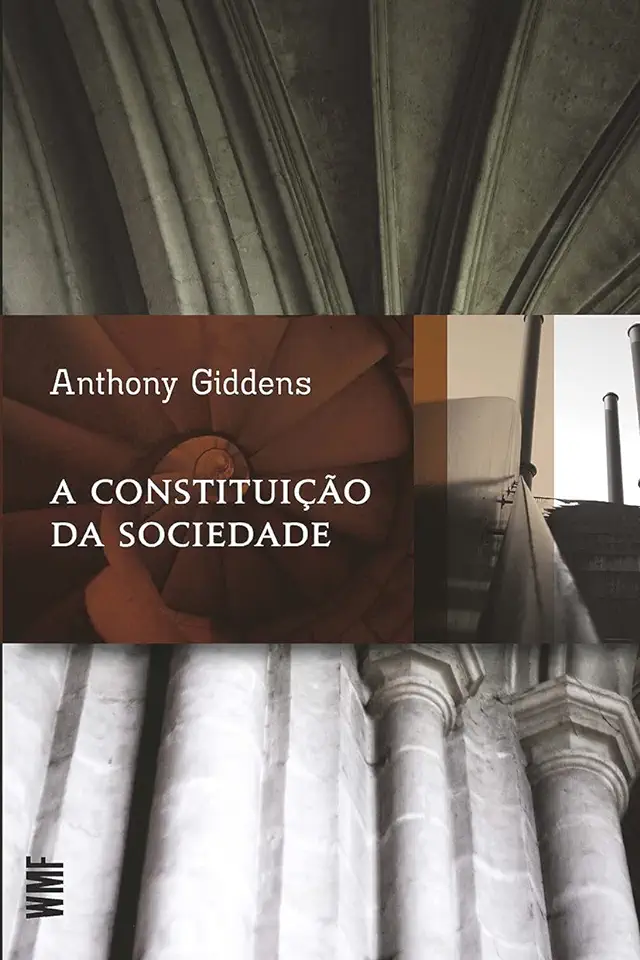
The Constitution of Society - Anthony Giddens
The Constitution of Society: Outline and Summary
In his seminal work, "The Constitution of Society," renowned sociologist Anthony Giddens presents a comprehensive and thought-provoking exploration of the fundamental principles that shape human societies. Through a masterful blend of theoretical analysis and empirical evidence, Giddens offers a unique perspective on the intricate relationship between individuals and the social structures they inhabit. This summary aims to provide an overview of the key concepts and arguments presented in the book, highlighting its significance and relevance in understanding the complexities of modern society.
1. Structure and Agency: The Duality of Social Life
At the heart of Giddens' analysis lies the concept of structuration, which emphasizes the dynamic interplay between structure and agency in shaping social life. He argues that social structures are not external constraints imposed on individuals but rather resources that individuals draw upon to construct their own actions and experiences. This duality highlights the reciprocal relationship between the individual and society, where structures both enable and constrain human agency.
2. Time-Space Distanciation and Globalization
Giddens introduces the concept of time-space distanciation to explain how globalization has transformed the way individuals experience and interact with the world. He argues that modern societies are characterized by the stretching of social relations across time and space, facilitated by advances in communication and transportation technologies. This phenomenon has profound implications for social life, as it enables individuals to connect with distant others and access information and resources beyond their immediate surroundings.
3. The Reflexive Project of the Self
Giddens explores the concept of the reflexive project of the self, emphasizing the individual's capacity for self-reflection and self-transformation. He argues that individuals actively construct their identities and life trajectories through ongoing processes of self-examination and self-modification. This reflexive project is shaped by both personal experiences and the broader social context, highlighting the dynamic interplay between individual agency and social influences.
4. Modernity and Risk
Giddens examines the concept of modernity and its inherent risks. He argues that modern societies are characterized by a heightened sense of uncertainty and risk, stemming from factors such as technological advancements, globalization, and environmental changes. Individuals in modern societies must navigate these risks and make decisions in the face of uncertainty, often relying on expert knowledge and trust in institutions.
5. Trust and Social Solidarity
Giddens explores the significance of trust and social solidarity in maintaining social order and cooperation. He argues that trust is the foundation of social life, enabling individuals to engage in social interactions and transactions with a degree of confidence and predictability. Social solidarity, rooted in shared values and norms, further strengthens the bonds between individuals and contributes to the functioning of society.
6. Conclusion: The Transformative Power of Social Theory
Giddens concludes by emphasizing the transformative power of social theory in understanding and shaping the world we live in. He argues that social theory provides the tools to critically examine social structures and institutions, empowering individuals to become agents of change and actively participate in the construction of a more just and equitable society.
Why You Should Read "The Constitution of Society"
"The Constitution of Society" is a must-read for anyone seeking a deeper understanding of the intricate workings of human societies. Giddens' innovative theoretical framework offers a fresh perspective on the relationship between individuals and social structures, shedding light on the complexities of modern life. Through his analysis of structuration, time-space distanciation, and the reflexive project of the self, Giddens provides a comprehensive toolkit for comprehending the dynamics of social change and the challenges of contemporary society.
This book is not just an academic treatise but a thought-provoking exploration of the human condition, inviting readers to critically examine their own experiences and the world around them. Giddens' writing is engaging and accessible, making "The Constitution of Society" an enjoyable read for scholars, students, and general readers alike.
If you are interested in sociology, social theory, or simply seeking a deeper understanding of the forces that shape our lives, "The Constitution of Society" is an essential addition to your bookshelf. Get your copy today and embark on a journey of intellectual discovery that will challenge your assumptions and broaden your horizons.
Enjoyed the summary? Discover all the details and take your reading to the next level — [click here to view the book on Amazon!]